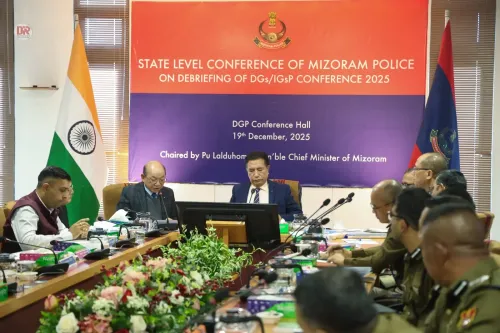How Did India’s Flexi Staffing Industry Achieve 9.7% Growth in FY25?

Synopsis
Key Takeaways
- 9.7% YoY growth in India's flexi staffing sector.
- Added 139,000 new jobs in FY25.
- Significant contributions from FMCG, retail, and IT sectors.
- Flexi staffing remains crucial for efficiency and structured employment.
- Digital transformation and cybersecurity are driving IT staffing growth.
New Delhi, July 15 (NationPress) The flexi staffing sector in India has experienced a robust growth of 9.7% year-on-year (YoY) in FY25, as reported on Tuesday. Despite ongoing global uncertainties, trade tensions, and a cautious hiring landscape in the last quarter, the industry successfully added 139,000 formal flexi workers, bringing the total workforce employed by members of the Indian Staffing Federation (ISF) to 1.8 million by March 2025, according to the latest annual report from the ISF.
The report indicates that the general flexi staffing segment achieved a notable 9.8% increase in net new employment over the year, even as the fourth quarter (Q4) saw a 2.6% decline due to seasonal factors and global challenges.
Key industries such as FMCG, retail, e-commerce, logistics, and energy were pivotal in driving this annual growth.
ISF President Lohit Bhatia remarked that, in spite of economic strains from global events and shifts in India's banking landscape, the staffing sector continues to generate formal job opportunities, particularly for new entrants and first-time job seekers.
He highlighted that staffing remains an essential strategy for businesses to enhance efficiency while providing structured employment options.
Furthermore, the IT staffing segment is showing signs of recovery after a difficult three-year period following Covid.
This segment reported a 7.8% YoY growth and a 2.3% increase in Q4 alone.
According to Manmeet Singh, Vice President of ISF, this growth is fueled by rising demand from Global Capability Centres (GCCs) and an uptick in project activities within service sectors.
Industries like e-commerce, logistics, FMCG, and manufacturing also played a significant role in this growth.
Singh noted that digital transformation across sectors, an increased focus on cybersecurity, and the growing adoption of emerging technologies like AI have all contributed to the positive trend in IT staffing.
Additionally, budget utilization and project completions towards the end of the fiscal year further intensified the demand for tech professionals.
ISF’s Executive Director, Suchita Dutta, emphasized that the Federation and its members are dedicated to enhancing formal employment opportunities, even amidst challenging economic conditions.










